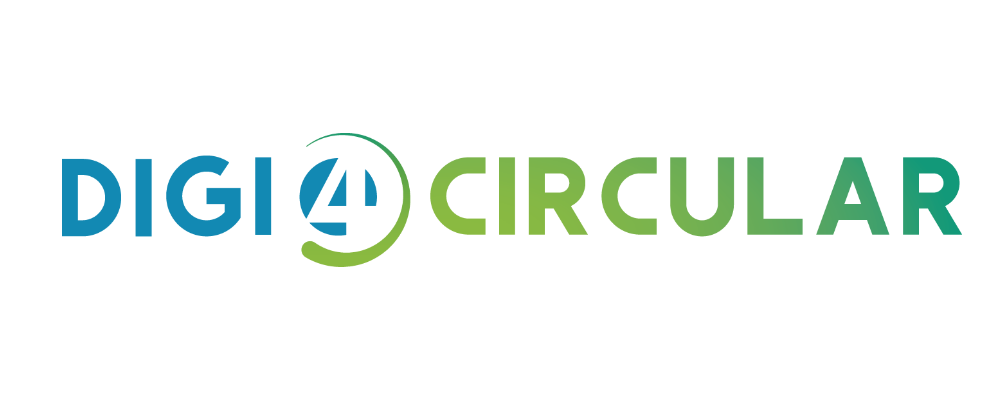Related Projects
DATA4CIRC recognises that collaboration is the key to innovation. We’re building a network comprised of:
- The EU Circularity Cluster (projects funded under the HORIZON-CL4-2024-TWIN-TRANSITION-01-05 call)
- Other EU-funded projects in fields related to DATA4CIRC
- Initiatives or companies working on related subjects
The EU Circularity Cluster
CIRCMAN5.0
CIRCMAN5.0 focuses on circular design principles that shift away from the traditional “take make-dispose” model, prioritising reusability, repairability, and recycleability. Through this approach, aim is to foster sustainable practices that contribute to a more resilient and resource-efficient future. It supports the entire modelling and simulation pipeline while evaluating the environmental sustainability of PV systems.
DIAMETER
DIAMETER aims to promote the transformation of metal manufacturing by creating an innovative circular economy framework powered by advanced additive manufacturing technologies. The project addresses one of Europe’s most pressing challenges: reducing the environmental impact of the manufacturing sector, which currently accounts for 20% of greenhouse gas emissions in Europe.
At its core, DIAMETER will develop an integrated digital ecosystem consisting of two groundbreaking platforms. The DIAgonal platform will provide manufacturers with AI-assisted tools to optimise their production processes for sustainability while maintaining economic viability. The DIAdemia platform will ensure workforce readiness through comprehensive training in circular manufacturing principles.
DIGI4CIRCULAR
The urgency to address the environmental impact of the prevailing linear economic paradigm has intensified, stressing the need for optimising resource utilisation, minimising waste, and maximising product value to achieve ecological and economic benefits. This is particularly critical in the automotive industry, where a significant volume of primary materials is employed. Recycling scrap materials in this sector can yield impressive 85% reduction in CO2 emissions. However, designing automotive parts for circularity requires innovative (1) tools and infrastructures to close current information gaps as well as (2) multi-purpose alloys with enhanced compatibility and processibility for scrap materials to increase recyclability of materials. This requires a comprehensive consideration of life cycle scenarios, potential constraints on recycled material, and adherence to changing standards and regulations. The DIGI4CIRCULAR project tackles these challenges by creating a robust digital workflow for circular product development integrated into the Synera low code platform, demonstrated on aluminium casting use case in the automotive sector. Through automated workflows, the project facilitates the generation of circular product designs and manufacturing possibilities, contingent on environmental impact assessments for different end-of-life scenarios. The approach relies on novel methods for material design and property prediction of circular alloys, rapid LCA and LCC analysis, knowledge extraction from norms and expert know-how, integrated by rule- and knowledge-based systems for automated product design generation. The workflow connects all necessary software tools and data generated throughout the value chain in a dedicated information space, whereas life cycle data for individual products is systematically stored in a Digital Product Passport accessible for all developers in the value chain.
ENCIRCLE
ENCIRCLE proposes a novel framework for environmental impact assessment via Digital Twins and Soft Sensors, incorporated in a virtual production line. Utilising this virtual environment as a simulation and training space for AI, ENCIRCLE aims to:
– Decarbonise manufacturing, searching for sustainable production configurations and designs that reduce environmental footprint without compromising quality.
– Train the workforce through gamification, cultivating new skills and fostering a new circular mindset.
– Follow a human-centred design and propose a symbiotic ecosystem of humans and AI through explainable Human-in-the-Loop methodologies.
GEAR-UP
GEAR-UP is committed to speeding up the shift towards sustainable and efficient manufacturing and design by creating innovative manufacturing technologies that use high amounts of recycled materials. Through advanced research, we will tackle critical challenges related to lightweight materials, life-cycle analysis, and increasing the use of recycled content.
PSS-PASS
The PSS-Pass project is developing a Digital Product Service System Passport (DPSSP) to enhance circularity in manufacturing by incorporating service data and utilising cutting-edge technologies like Machine Learning and Digital Twin technologies to help companies track and improve their environmental footprint, and these solutions will be validated through pilot studies in three diverse sectors: home appliances, complex equipment, and the textile industry.






